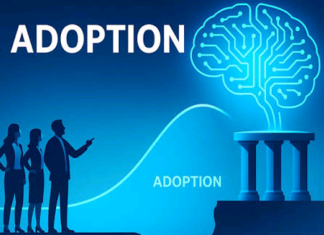When you purchase through links on our site, we may earn an affiliate commission. This doesn’t affect our editorial independence.
Following Microsoft’s announcement to officially end support for Windows 10 on October 14, 2025, there have been expectations from African countries to begin issuing formal warnings to their citizens. These warnings would be to alert the public about potential cybersecurity threats that may follow. Conversely, there hasn’t been any major guidance regarding the end of Windows 10 support, as expected. TechPolyp links this inaction with the absence of a coordinated national advisory in the country’s digital space.
Essentially, the end of support is an indication that Windows 10 systems will no longer receive security updates, patches and technical support. Sadly, this development will effectively position millions of users globally to face rising cybersecurity threats. These threats come as malware, ransomware, and unauthorized data breaches. To prevent this impending chaos, Microsoft recommends that users upgrade to Windows 11 or purchase compatible new devices. Alternatively, the tech giant has also advised users to enrol in paid Extended Security Updates (ESU) for temporary protection before the end of Windows 10 support.
Why Tanzania Acted and Nigeria Remains Silent on Windows 10 Support
In Africa, Tanzania is the only country to caution its citizens about the Windows 10 support looming threat. The country’s Computer Emergency Response Team (TZ-CERT) has released a comprehensive bulletin since March 2025. The body’s advisory stated clear steps for organizations, schools, and individual users to secure their systems before the cutoff date. Furthermore, TZ-CERT warned against the continued use of unsupported software. It added that it establishes “significant cybersecurity risks” and recommended phased hardware replacement where necessary.
In Case You Missed It:
In what appears like a sharp contradiction, Nigeria’s regulatory bodies haven’t yet publicly addressed these challenges. The regulatory bodies include the National Information Technology Development Agency (NITDA), the Nigerian Communications Commission’s CSIRT, and the National Computer Emergency Response Team (ngCERT). The absence of these public advisories raised concerns over the Windows 10 support. This reason is tied to the fact that the agencies are typically responsible for cybersecurity guidance. Therefore, there are high expectations for official mention of the Windows 10 lifecycle deadline. This could have been on their public bulletins, official portals, or press statements. However, TechPolyp suggests that the absence of a clear national directive shouldn’t deter organizations from preaching this warning.
However, it is indeed concerning that Nigeria as the Africa’s largest economy and one of its fastest-growing digital markets has been silent on this matter. The silence from its key IT regulators following Windows 10 support’s notification has become harder to justify. But will the Nigerian authorities break their silence and issue structured transitions? Or will the citizens address it independently? Time shall tell.







